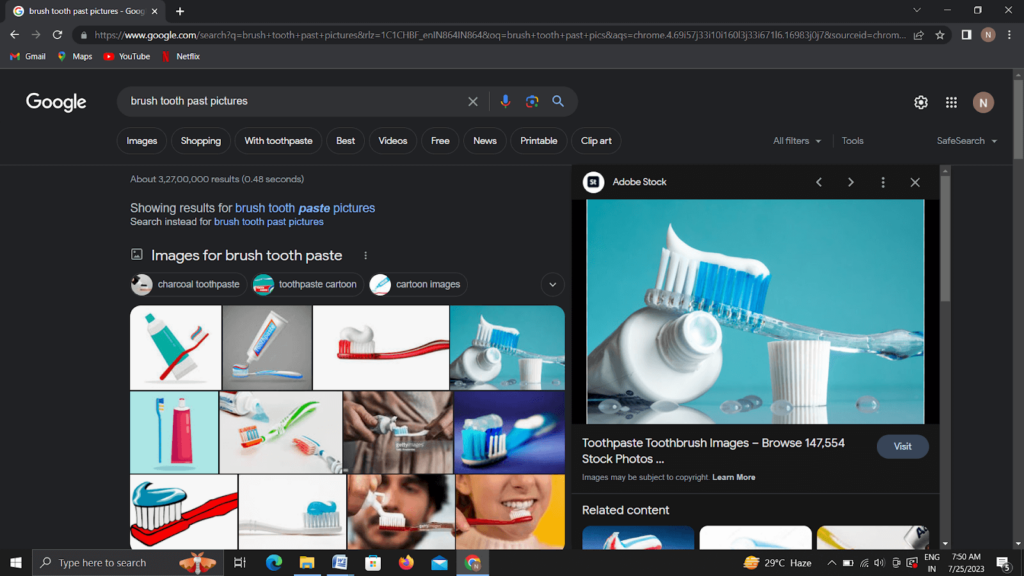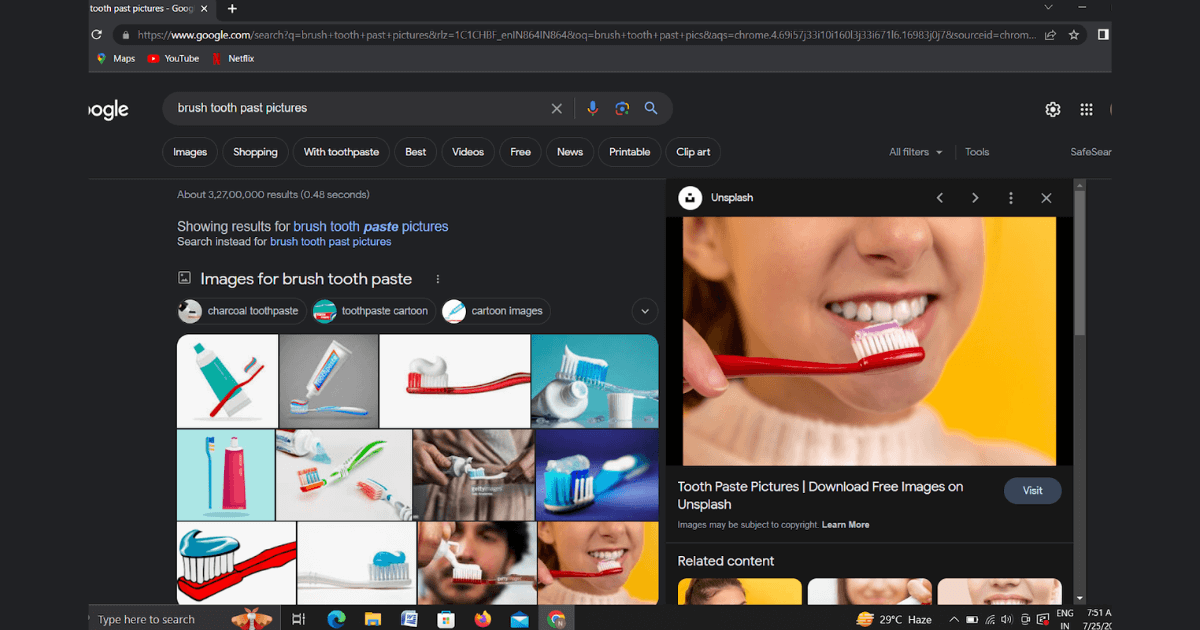
Dr. Naveen Nandal is a highly accomplished dental professional. He completed his House Job at AIIMS, New Delhi, in 2001 and subsequently joined the prestigious Army Dental Corps in February 2002, where he continues to serve. Dr. Nandal pursued his MDS in Prosthodontics & Crown and Bridges at Maulana Azad Institute of Dental Sciences, New Delhi. He has contributed to dental education at AFMC Pune and Army Hospital Research and Referral, Dhaulakuan, Delhi, and has been recognized for his expertise in Dental Implantology and received accolades for his scientific endeavour.
Lastly comes the method of brushing about which the most important thing to remember is the saying “Even a soft rope can cut a hard stone if it goes over it multiple times”.
We all have visited dentists at least twice in our lifetime with a common thought in mind that where did I go wrong in taking care of my oral hygiene that I have to undergo dental treatment. Today, this question, “How to maintain oral hygiene,” is more pertinent with the meteoric rise in tooth decay or dental caries incidents being reported by dentists among the general human population. The maintenance of oral hygiene can be compartmentalized in three different aspects: i.e quality of tooth brushing aids, the time of tooth brushing, and the method of tooth brushing.
Historically, humans have been using various types of tooth cleaning aids like Neem tree sticks, commonly called ‘Datun’ in towns/villages and a variety of toothbrushes along with toothpaste. It has been seen after many long-term studies that the hard and medium-bristled toothbrushes can harm our teeth, causing cervical abrasion. The cervical abrasion facets on the tooth surface are a common cause of tooth sensitivity, leading to toothache. So nowadays, the usage of softer bristle tooth brushes is recommended, which do not harm the teeth while cleaning away the softer and sticky deposits of food from the teeth adequately. Use of FDI-approved toothpastes along with a soft brush is must, as they contain 1000 ppm of fluoride, which makes our teeth resistant to decay.

The timing of tooth brushing has a very important impact on our oral hygiene. Most of us have heard that twice brushing is good for our dental health, but have we ever thought, When should we brush our teeth” i.e before meals or after meals. The time of brushing is very important, as when we clean the tooth surface, we remove food particles, which are the food for microbes causing tooth decay present in our mouth. So when we brush after meals, the food sticking on teeth is not available for the growth of harmful microbial colonies, causing dental caries and even gum infections. Hence, in order to keep a check of the harmful microbial growth, we should always brush after breakfast and after dinner using a fluoridated toothpaste.
Lastly comes the method of brushing about which the most important thing to remember is the saying “Even a soft rope can cut a hard stone if it goes over it multiple times”. The relevance of this saying is that, even movement of soft bristles on teeth can also become harmful to the teeth i.e if too much pressure is applied by our hands in a harsh movement of brush in forward and backward directions, abrasion of teeth starts. Tooth brushing should always be done in short up and down soft strokes covering three teeth at a time as the number of bristles given on a brush can only reach three teeth at once. All three surfaces of teeth, i.e., the outer surface towards the lips and cheeks, the inner surface towards the tongue, and the chewing surface, should be cleaned with similar small circular strokes of tooth brush. Following these habits, the tooth brushing dilemma will be gone along with most dental problems for good, and one can stay healthy with a smile.
Maintaining good oral hygiene is crucial to prevent dental problems such as tooth decay or dental caries. To achieve this, one must consider three key aspects: the quality of tooth brushing aids, the timing of tooth brushing, and the method of tooth brushing.
The time of brushing is very important as when we clean the tooth surface we remove food particles which are the food for microbes causing tooth decay present in our mouth.
Firstly, toothbrush selection is critical. Traditional hard and medium-bristled toothbrushes can harm teeth by causing cervical abrasion, leading to tooth sensitivity and pain. It is advisable to use soft-bristle toothbrushes that effectively remove food deposits without causing damage. Additionally, using toothpaste approved by the FDI (Fédération Dentaire Internationale) is essential, as they contain fluoride, making teeth more resistant to decay.
The timing of tooth brushing is equally important. While most are aware of the importance of brushing twice a day, the timing can make a significant difference. Brushing after meals is recommended as it removes food particles that can serve as a food source for harmful microbes responsible for tooth decay and gum infections. Therefore, brushing after breakfast and dinner with a fluoridated toothpaste is ideal for maintaining oral hygiene.
Lastly, the method of brushing should be correct. Gentle and precise brushing is essential, as excessive pressure or harsh movements can lead to tooth abrasion. The recommended technique involves using short up-and-down strokes to cover three teeth at a time. This ensures thorough cleaning of all tooth surfaces: the outer surface facing the lips and cheeks, the inner surface facing the tongue, and the chewing surface.
In conclusion, maintaining oral hygiene requires attention to toothbrush quality, brushing timing, and brushing method. By using soft-bristle toothbrushes with approved toothpaste, brushing after meals, and employing gentle, precise brushing techniques, individuals can reduce the risk of dental problems, ensuring a healthy and confident smile.

